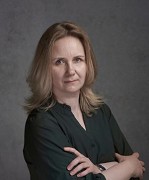Authors
Magdalena Lachowicz1; 1 Adam Mickiewicz University in Poznan, PolandDiscussion
The largest anti-war movement, dubbed the "mass march," was born ,in the early 2000s against the war in Iraq. Multimillion demonstrations swept across the world in 2003. The movement was global, solidarity, transnational and forged a community identifying with the idea of peace. It united traditional anti-war movements, networks of opponents of the "Vietnam War," the anti-nuclear movement, pacifists and so-called ordinary citizens. An effective model of action was crystallized. The war in Ukraine, although it aroused widespread protest, did not forge a unified such mass anti-war movement and did not unite the world's politicians. It showed political and economic divisions and exposed those who, in creating the policy of states, are guided primarily by vested interests (which, however, did not deprive them of support). Activists, the intellectual elite, experts, politicians debate the shape of peace and force us to reflect on what is concrete behind the idea and what consequences it will bring to the world.
I assume that social movement actors are involved in political and/or cultural conflicts to promote or oppose social change on a systemic or non-systemic level. Peace organizations that have been active in the Nordic countries for years have been involved in protesting against the war in Ukraine, mainly in symbolic actions (demonstrations, petitions, appeals, actions for refugees) or in cooperation with actors in Ukraine. The main peculiarity of the social movements was not a specific way of performing the function of representation of interests - for these actors, peace activities have been their priority for years, and the war in Ukraine was only an impulse to expand traditional partnerships and cooperation. These are actions based on a shared "anti-war identity" and ideology. The war in Ukraine is an opportunity for existing demands, such as anti-nuclear or climate change, to be more widely heard, discussed, non-marginalized, and situated in mainstream public discourse. Activities and campaigns, in turn, are expected to contribute to redefining the cultural and political environment in Ukraine or Russia, where the representation of peace and democratic interests takes place. The research analysis looks at the peace movement in the Baltic Sea states - Sweden, Finland, Lithuania, Latvia, Estonia in a comparative perspective from 2014-2023.

